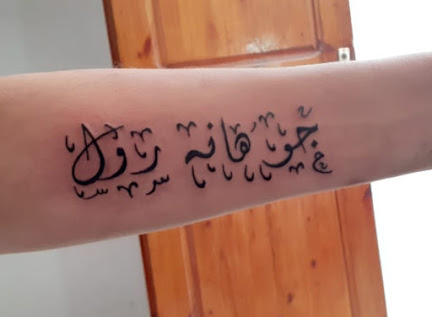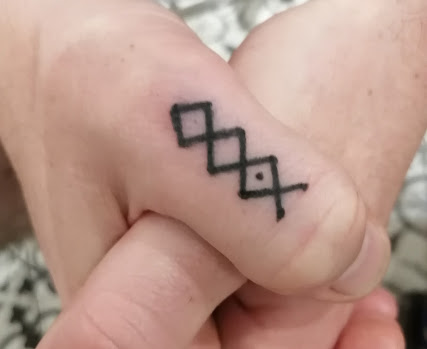Introduction
People have denoted their bodies with tattoos for millennia. These extremely durable plans — some of the time plain, now and again intricate, consistently private — have filled in as special necklaces, superficial points of interest, statements of adoration, indications of strict convictions, enhancements and even types of discipline," said Joan Fletcher, analyst of paleohistory at the College of York in England on the historical backdrop of tattoos.
Tattoos show
various feelings and encounters an individual might have felt or gone through,
and can continuously be utilized in recognition of somebody extraordinary to
you.
How do I become a
tattoo artist?
My name is zouhair oitache, I have been inking since I could hold a tattoo machine, so I did my most memorable tattoo when I was around 18 years of age,
I essentially experienced childhood in home, learning holding the machine, setting up a station, making a stencil, different line work, concealing, and tidying up the station.
In order to become a tattooist, I spend around 2 years drawing and practicing initially on things like pigskin and fruit (think bananas, grapefruits and oranges) .
How was my first tattoo experience?
In general People have this idea that they have to lay down and endure it, but we're all human and most of the tattoo artists have also gotten tattoos so we understand what it's like." The first moments of getting your tattoo will probably be the most painful, but Don't worry that feeling won't be as intense the whole time.
What feel like to be a tattoo artist?
For my purposes, inking is a method for moving away from the world and just let the machine move. Inking can be hard, yet with time and loads of rehearsing it can get simpler. I need to keep inking in my future, yet I likewise plan to go to class and earn a college education. Regardless of that, it most certainly is something great to do as a side interest.
While some established artists can work short hours with high-end clients, beginners aren't in this position. They have to work around the clock to draw designs and tattoo clients. It's a lot of work and you'll leave tired. If it's right for you, you'll also leave happy.
Why I love being a tattoo artist?
Working as a tattoo artist allows me to strengthen my creative skills since my clients may request various designs, colors and styles. Some clients may ask me to create a unique design, which allows me to use my design experience and creative abilities.
What is a good
tattoo artist?
In my opinion Accuracy and thoroughness are some of the essential traits of
successful tattoo masters. Tattooing is a highly demanding job. One must listen
carefully to their customers' ideas to accurately turn those thoughts into art
pieces that will match their wants and desires.
And it should be noted that the tattoo artist should not to have tattoos on his body to be a real tattoo artist,however that the coworkers and customers will ask why you don't have tattoos. It is up to them if they are heavily inked or not.
Is tattooing a skill or talent?
Some of the best tattoo artists are former art students and naturally talented artists who started with a different medium. But just because you're good at drawing doesn't mean you will immediately become good at tattooing. Tattooing is a skill that takes time and dedication to master Naturally or academically.
What inspires me?
Why do people enjoy tattoos?
How hard is it to be a tattoo artist?
Rivalry - the tattoo business can be exceptionally aggressive. In this manner, people should have a portfolio and grandstand their work. They should completely investigate, stay up with the latest with patterns and fabricate their standing. Genuinely and intellectually requesting - tattoo craftsmen in some cases need to work long and unsociable hours.
Why are tattoos so special?
Because they represent uniqueness and self-expression, tattoos are unique. They represent individual tales, convictions, and recollections as permanent artworks engraved into the flesh. By getting a tattoo, one can embrace transience and leave a permanent reminder of their experience. They create a common language of identification by bringing together many cultures and subcultures. Tattoos are particularly alluring because of the craftsmanship involved and because of their emotional significance, which gives people the confidence to openly express who they really are.


















